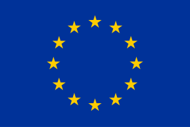FoodSHIFT2030’s webinar ‘Education for a new generation of food citizens’ – 25 February 2021, online

On 25 February, FoodSHIFT 2030 held a webinar highlighting the role of education to raise children’s awareness on the impact of food on the planet, health, and climate change.
Athen’s FoodSHIFT2030 Lab increases children’s knowledge on the benefits of plant-based, circular, resilient, and local diets through involving children in events with external stakeholders. These include presentations on obesity prevention or a national contest during which children can make healthy snacks. The Lab also worked on a project aiming at collecting data to better understand children’s food habits. More than 100,000 meals have been assessed for two months. The results showed that children ate more frequently during the Covid-19 crisis as they were home more often. However, their snacks were healthier and contained more fruits and vegetables.
Copenhagen’s FoodSHIFT2030 Lab considers food as an integral part of school education and decided to directly involve children in meal preparation and distribution. 95% of the food served in the 16 public schools is organic. Schools also organise communal lunches to involve parents.
The webinar also explored the ‘Shifting Urban Diets’ project led by EAT-Lancet. Three Master’s degree students designed food menus aimed at reducing greenhouse gas (GHG) emissions by 25% in school canteens where 90% of all food already is organic. They analysed different diet scenarios and noted that reducing meat consumption to once a week could decrease GHG emissions by 22%. GHG emissions could even be decreased by 45% if meals were fully vegetarian, and by 65% if they were vegan. The London-based charity Food Matters presented their Fresh Enterprise programme, implemented in collaboration with the BELAZU company. The programme already allowed more than 218 children to visit the company production workplace and 382 to attend cooking masterclasses. 54 children had the opportunity to participate in a contest to create their own pasta sauce, which has been tested by a professional panel and was sold by BELAZU afterwards. Three children testified during the webinar and expressed the benefits of such a programme. Among others, they learned more about the food production process, cooking practices, and food marketing. One of the children is now eager to work in food marketing.
If you are keen to discover more about the above initiatives, watch the recording.
FoodShift2030 will launch an ambitious, citizen-driven transition of Europe’s food system to a low carbon, circular future. This Horizon 2020 project is promoting food systems innovations in nine cities across Europe. Follow the project on social media using @FoodSHIFT2030 on Twitter, Instagram, YouTube and LinkedIn.
IFOAM Organics Europe contributes to the conceptual framework for further development of governance strategies and food policy strategies. We will also disseminate project outputs within the organic network and at our main events.


FoodSHIFT 2030 has received funding from the European Union’s Horizon 2020 research and innovation programme under grant agreement number 862716. This communication only reflects the author’s view. The Research Executive Agency is not responsible for any use that may be made of the information provided.

